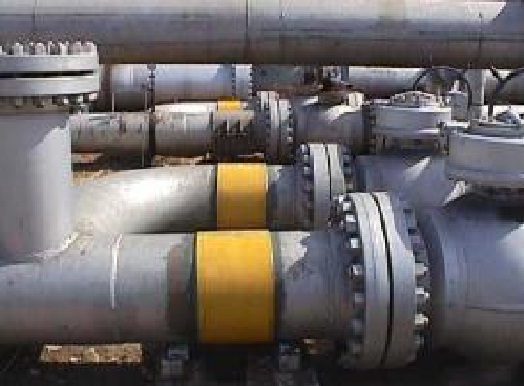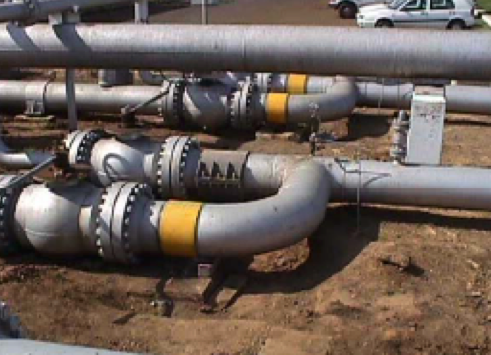West Africa
Pipe Details
- 457-mm (18-inch) crude processing lines
- 20 bar (290 psi) operating pressure
- Ambient temperature
Summary
- External corrosion of three 457 mm (18-inch) crude processing lines
- Trained local technicians installed Clock Spring repair sleeves to restore line integrity
- The installation team executed the composite repair in 2 hours, incurring minimal operational disruption
- No heavy equipment was required
- There was no hot work required, so line remained in service during the repair
During an inspection of its outdoor crude processing piping, a company found evidence of external corrosion on several of its 457-mm (18-inch) lines operating under 20 bar (290 psi) pressure. The cause of the corrosion was a combination of water entrapment and galvanic corrosion, also known as bimetallic corrosion, which is the result of an electrochemical process in which one metal corrodes when it is in electrical contact with another in the presence of an electrolyte. Under these circumstances, corrosion occurs in one of the metals much more rapidly than it does in the other.
Because of the position of the pipes, it was not possible to raise them to carry out the repair. To access the affected areas of the lines, the CSNRI trained repair team inserted blocks to support the pipe, cutting away and removing the original pipe supports. To ready the pipe for the application of the Clock Spring repair, the team used wire brushes and sandpaper to prepare the pipe by hand.


From preparation to final testing, the installation team was able to complete 3 repairs in 2 hours, including replacing old pipe supports with new ones and removing the old blocks.
CSNRI helped the company achieve its goals for safety and pipeline longevity, fitting the line with supports during construction to prevent future problems associated with crevice, galvanic corrosion and erosion.

